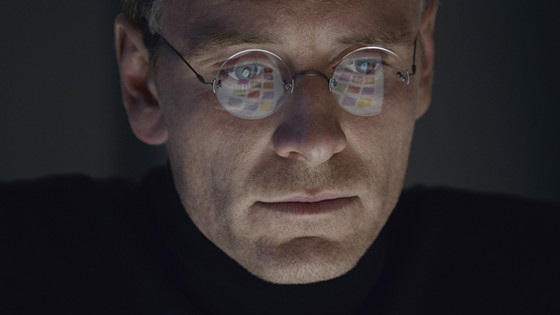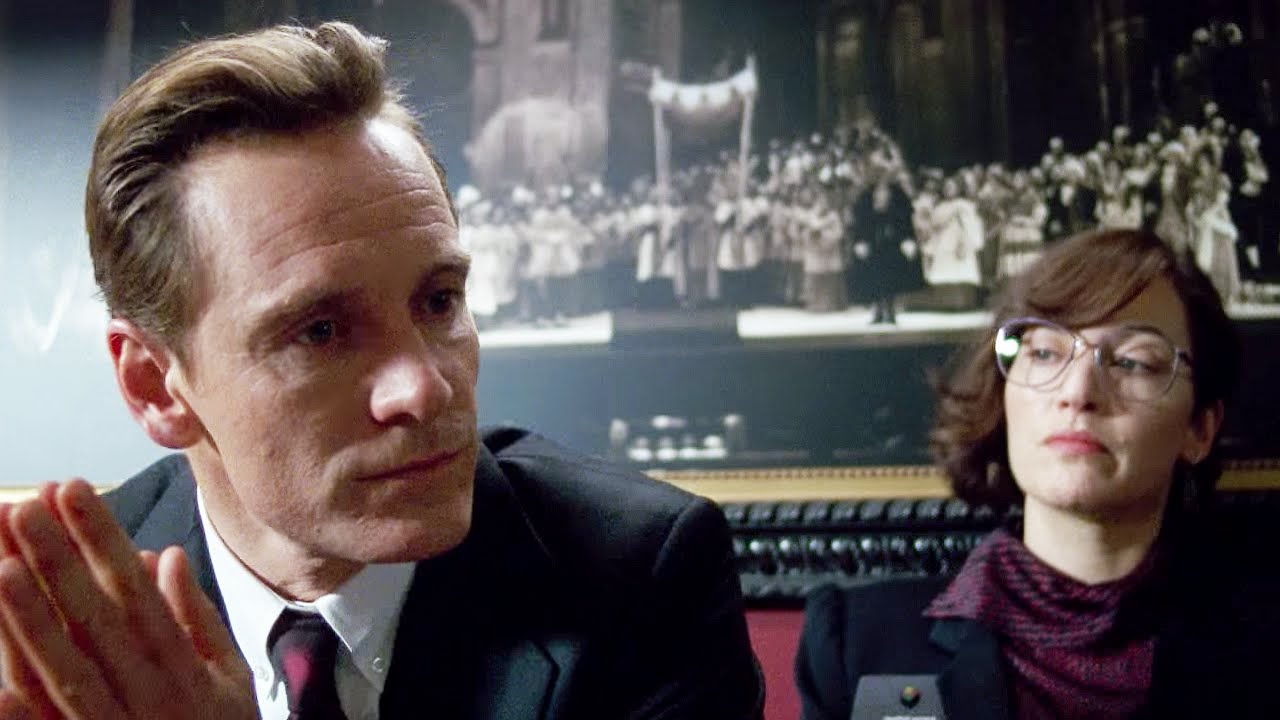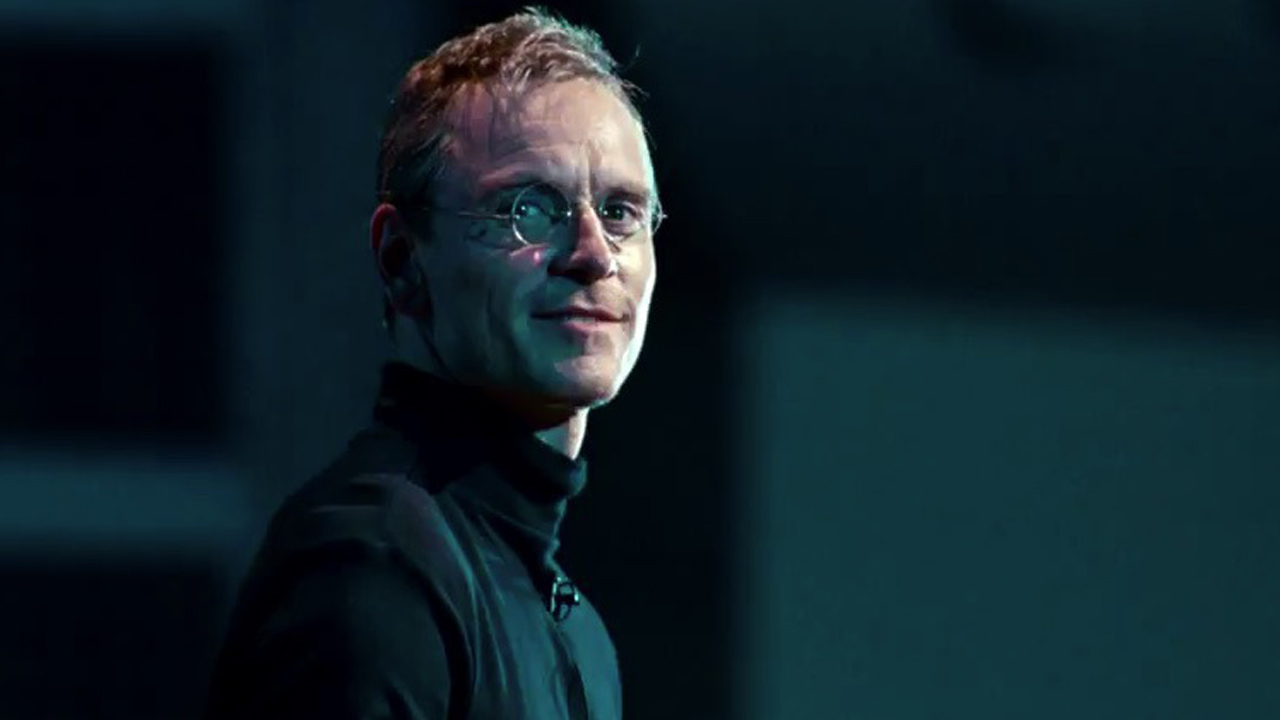When the idea for a new Steve Jobs movie was announced, the general consensus was a giant eye roll. 2012’s Jobs was a box office flop, resulting in people’s reluctance to hear the CEO’s story once more. However, once it was heard that Aaron Sorkin and Danny Boyle would be involved, people started to get interested.
Since Sorkin has already written about a technology guru, it seemed like this would be an easy project to tackle. While Steve Jobs isn’t a perfect film, it’s a terrific character study that dives into the tech tyrant’s personality.
While Sorkin’s inspiration came from the famous biography by Walter Isaacson, he stressed that he wasn’t aiming to make a traditional biopic, but rather a look into the man who is known for being a genius and, well… sort of an asshole. Sorkin writes Steve Jobs like a Shakespearian play with three distinct acts, each one taking place backstage before a major product launch: The Macintosh in 1984, the NeXt in 1988, and the IMac in 1998.
Within each act, we see Jobs confronting the same six people and how his lack of sympathy, —and emotion in general— affects those people. There have been plenty of negative reviews stating that this isn’t the Jobs that they knew and loved, and while that may be true, Steve Jobs takes this volcanic, eccentric person and attempts to pick apart his mind.
Danny Boyle has a long history of making compelling and vivid stories such as 127 hours and Slumdog Millionaire. Despite the claustrophobic environment, he takes advantage of the open spaces to showcase the characters’ emotion, through vivid colors and imagery. The three sequences were shot in 16 mm, 35 mm, and digital to signify Apple’s advancements in technology throughout the 14 years of the film.
Sorkin’s setting feels claustrophobic and tense, similar to last year’s Birdman. The action and suspense thrive through the dialogue in each of the forty-minute acts. Whether it was berating his employees to get a computer to say hello, or emotionally abusing his former boss, Jobs’ quips cut like knives and are, by far, the movie’s greatest strength.
Even though there were lines that made people cringe (like Jobs telling his daughter that he will create something to put a 1000 songs in her pocket), the screenplay was still strong and made the two hour running time feel like mere minutes.
People’s chief complaint was that Michael Fassbender looked nothing like Jobs, unlike Kutcher before him. However, once Fassbender opens his mouth, the looks do not matter anymore.
Through his mannerisms and (lack of) emotion, Fassbender makes this film completely his own. He may not have gone through the intense research that Kutcher did, but he ultimately felt more authentic. By the end of the third act, Fassbender is completely unrecognizable, and it feels like we’re watching a man present his vision of the future.
But was anyone able to tame the snarky CEO? Only his “take-no-shit” assistant, Joanna (Kate Winslet), was able to come close. The closest thing he has to a friend, Joanna was the only person who would give him shit for his choices regarding his family and treatment of his employees. Despite her accent falling out a few times, Winslet gave a great performance, sinking into her role almost as much as Fassbender.
But in terms of side characters, Seth Rogen and Jeff Daniels stood out every time. Rogen once again showed that he could play the dramatic role as the betrayed Steve Wozniak, who simply wants Jobs to credit the Apple II Team. We’ve seen Daniels handle “Sorkinese” language before in The Newsroom, and he does it again just as effectively as John Scully, Apple’s former CEO who went on to fire Jobs.
Even with the compelling characters, the story felt contrived a lot of the time. Sorkin attempted to humanize this cold individual by putting him face-to-face with the same set of characters and same set of conflicts in each act. Technology launches must be very stressful and eye-opening, because thirty minutes before each one, everyone has to have to pour their heart out to Jobs. It made things feel less realistic and more fabricated.
And then there was the central story, which revolved around him and his daughter, Lisa (Makenzie Moss). Jobs repeatedly denied being her father, even going as far as denying her mother child support. Besides overly exaggerating their tense relationship, the plotline itself felt forced just to instill a central conflict. At times, it felt a little “Lifetime-y,” but, overall, it wasn’t unbearable. It just would have been nice to focus on other particular people or events going on, but the father-daughter rigmarole took up more than it needed to.
Even though Steve Jobs is much weaker than The Social Network, Sorkin has once again proven that he can lay out another tech genius’ life on the big screen. Like a computer, he opens up this character’s mind and tries to figure out which wires go where. Thanks to the writing, direction, and performances, it might be able to compete for an Oscar or two.
Taste of Cinema Rating: 4 stars (out of 5)


